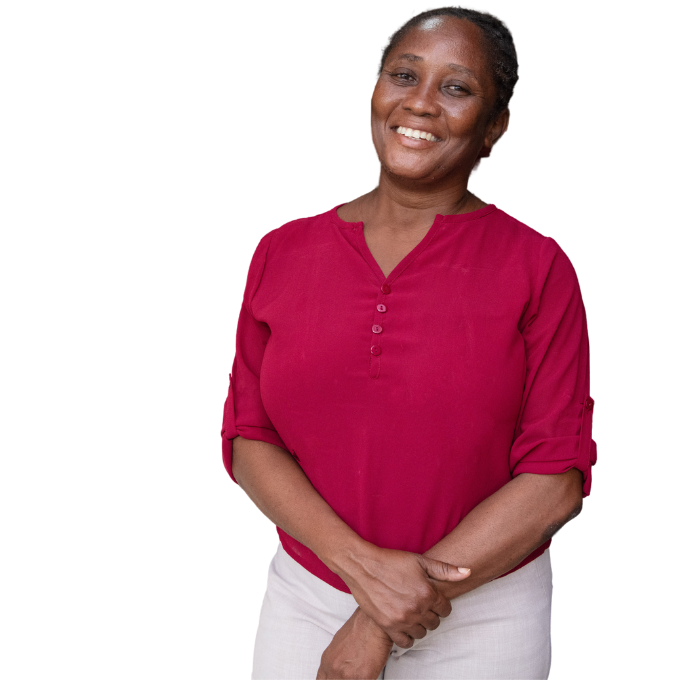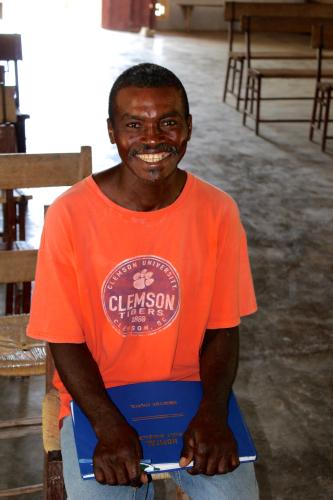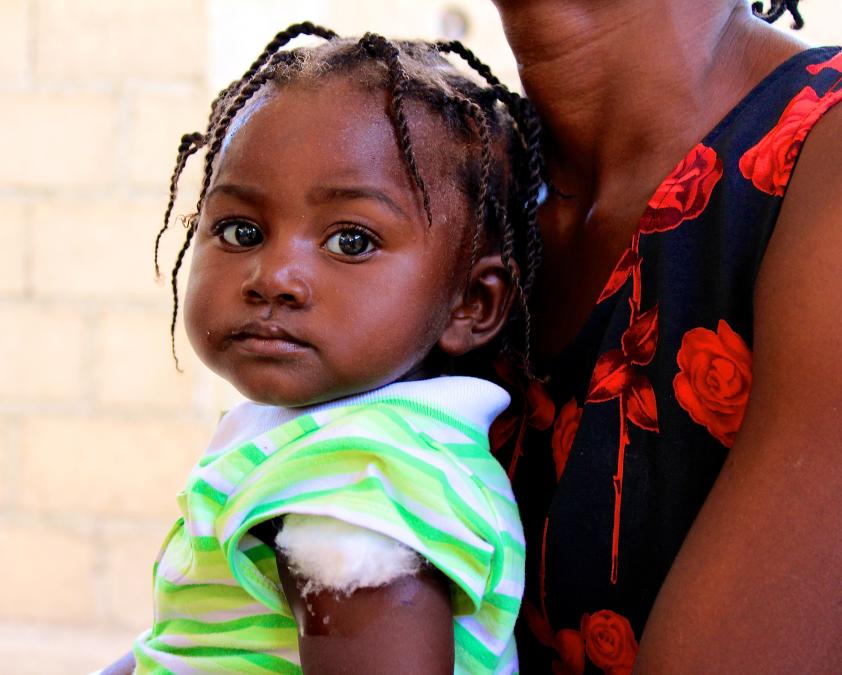“We never give up on our patients. We are proud of our mission, which is to serve the most vulnerable.”
Your donation can help Dr. Clermont and our entire staff care for more patients than ever before.


There are no motorcycles, few homes, and no passersby on the path to help guide the way. Miles of winding and unpaved roads lead to a small church painted in sky blue and light yellow. This is where Jean Lerminier, a veteran SBH voluntary community health worker, gathers the mothers and children of Mexy for his community’s monthly rally post. Here, he will lead a discussion with parents about common health problems and check the children’s health.
As the eyes and ears of the hospital in the field, community health workers like Jean are key in extending the reach of SBH to the often-remote villages in our catchment area. This program, supported by grants and gifts from donors like you, serves as the front line of healthcare for thousands, in measuring and weighing children to chart their growth, checking for signs of malnutrition, providing vaccinations, and supporting patients with HIV or tuberculosis—all at no cost to families.
A resident of Mexy since birth and a SBH community health worker for the past 18 years, few are more aware of the need and impact of community health work than Jean. “Before, families in my community used to travel to Côtes-de-Fer for care, which was prohibitively expensive and time-consuming. Oftentimes, people ended up with no care at all,” explains Jean. “I heard that St. Boniface was looking for community health workers in the area, and decided to answer the call.”
Since putting out that call in 1997, SBH’s community health worker corps has grown. Seventy community health workers like Jean now serve alongside our community nurses and community facilitators to bring essential preventative care and education closer to home for families.
As with his fellow community health workers, Jean’s commitment to the program is evident. “During training, I used to walk three hours to the hospital, and three hours back from the hospital, three days a week, for seven months. I still walk to the hospital for the monthly community health worker meetings.”

Djoulica Belsaint of Oranger patiently sits on her mother’s lap as she prepares to receive a vaccination at a community rally post.
I have learned a lot. I am much more connected to people in my community, young and old. Most importantly though, I have seen people in my community come back to life through my work
Jean Lerminier
Jean receives a modest stipend for his work, but the rewards are mostly nonmonetary. “I stay working as a community health worker because I’ve seen the results. Kids in my community are healthy and not malnourished. Even my own kids have benefitted from the vaccines and care St. Boniface provides,” says Jean with optimism.
Responsible for mapping the health of his community, on any given day of the month Jean can be seen walking across Mexy—knocking on doors, delivering medications, sitting with families in their homes, and lending a trusted ear as they describe recent illnesses and other health concerns. These intimate interactions are essential to bringing comprehensive and compassionate care to the doorsteps of families, and in identifying cases that warrant a medical professional’s attention.
“I feel very connected to the hospital. If I call the hospital and tell them that a woman with an at-risk pregnancy is in the community, I know the hospital will send a car right away,” explains Jean. “Even cholera was no longer a death sentence in my community because I can quickly get people to the hospital.”
On days when Jean is not visiting homes, he might spend time updating his registry book tracking the health history of the community’s children, or preparing for the monthly rally post.
Preparing to turn his attention back to the next child, Jean Lerminier reflects,
“I have learned a lot. I am much more connected to people in my community, young and old. Most importantly though, I have seen people in my community come back to life through my work.”
Your donation can help Dr. Clermont and our entire staff care for more patients than ever before.
